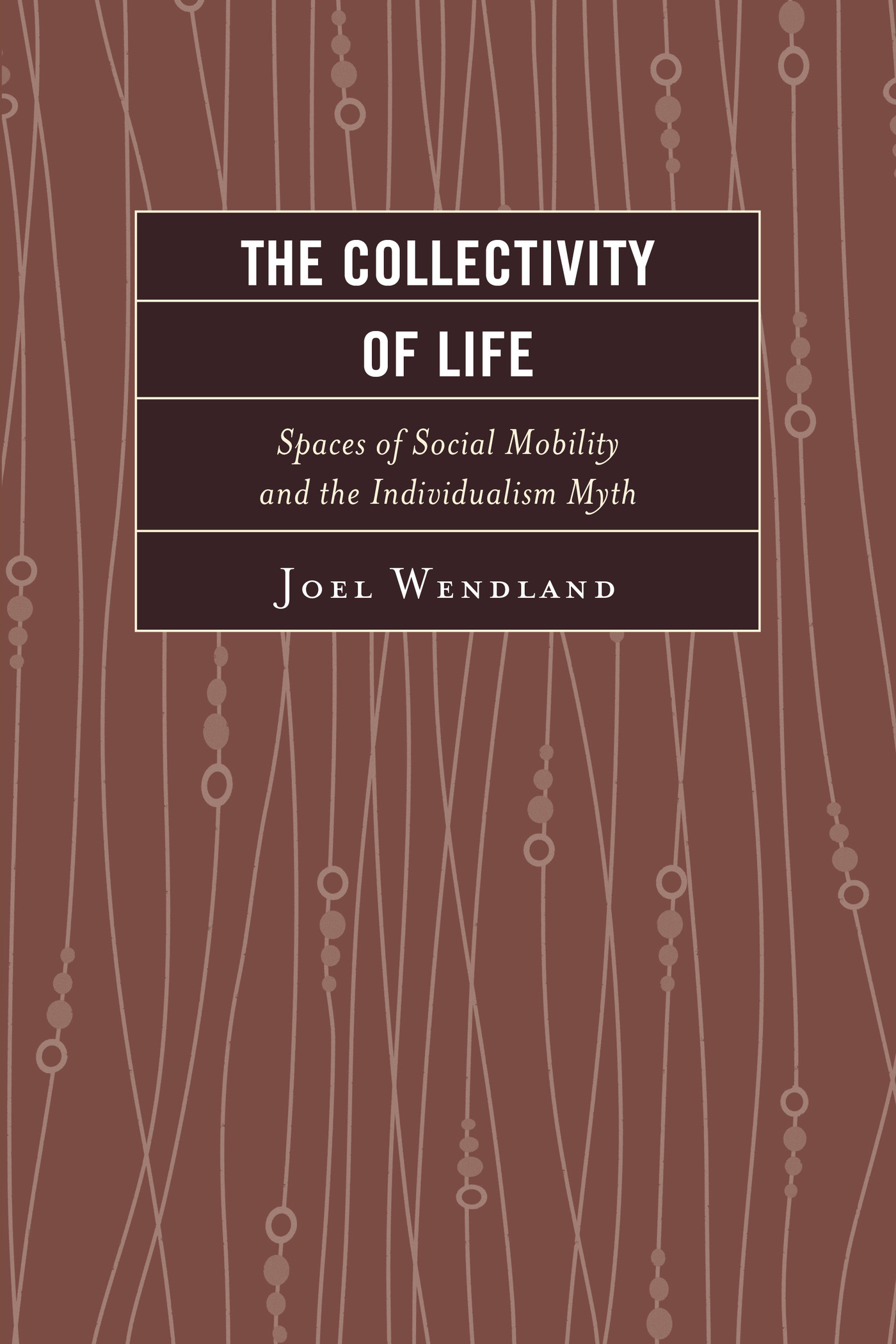The Collectivity of Life
The Collectivity of Life
Spaces of Social Mobility and the
Individualism Myth
Joel Wendland
LEXINGTON BOOKS
Lanham Boulder New York London
Published by Lexington Books
An imprint of The Rowman & Littlefield Publishing Group, Inc.
4501 Forbes Boulevard, Suite 200, Lanham, Maryland 20706
www.rowman.com
Unit A, Whitacre Mews, 26-34 Stannary Street, London SE11 4AB
Copyright 2016 by Lexington Books
All rights reserved. No part of this book may be reproduced in any form or by any electronic or mechanical means, including information storage and retrieval systems, without written permission from the publisher, except by a reviewer who may quote passages in a review.
British Library Cataloguing in Publication Information Available
Library of Congress Cataloging-in-Publication Data
Names: Wendland, Joel, 1972- author.
Title: The collectivity of life : spaces of social mobility and the individualism myth / Joel Wendland.
Description: Lanham : Lexington Books, [2016] | Includes bibliographical references and index.
Identifiers: LCCN 2015042250 (print) | LCCN 2015046578 (ebook) | ISBN 9781498513951 (cloth : alk. paper) | ISBN 9781498513968 (electronic)
Subjects: LCSH: Social mobility. | Group identity. | Individualism. | Space. | Discourse analysis, Narrative. | EthnologyBiographical methods.
Classification: Classification: LCC HT612 .W46 2016 (print) | LCC HT612 (ebook) | DDC 305.5/13dc23
LC record available at http://lccn.loc.gov/2015042250
 TM The paper used in this publication meets the minimum requirements of American National Standard for Information Sciences Permanence of Paper for Printed Library Materials, ANSI/NISO Z39.48-1992.
TM The paper used in this publication meets the minimum requirements of American National Standard for Information Sciences Permanence of Paper for Printed Library Materials, ANSI/NISO Z39.48-1992.
Printed in the United States of America
Introduction
While the 1990s culture wars have faded from the public memory, serious contentions over belief in long-held American myths (and thus identity) persist. In this atmosphere, conservatives demand that school curricula avoid teaching young people to think critically about (let alone resist) nationalist mythologies, such as the one that sits at the center of this manuscript: meritocratic individualist social mobility. The election of the countrys first African American president proves that particular myth true, many claimeven as they fight to prove that his presidency and policies are a failure. That president, too, occasionally nods to this mythology in his speeches, though analysis of some of his rhetoric and his self-writing (prior to his presidency) suggests that he prefers to credit a complex interaction of individual gift and gumption, community and family, as well as social institutions and spaces for his personal success. Such a view reflects what Marxist scholar David Harvey calls the contradiction between the culture of individualism and material imperative for collective and public goods (2014, 42).
Connected to this contradiction in U.S. society is a general racial anxiety, in particular a contested white supremacy challenged by the growing demographic shift toward a majority minority nation-state, perturbed by the changing meaning of citizenship due to immigration, and agitated by the severity of the economic crisis following the 2008 recession. Race, racial politics, racism, and the technologies of resistancethe essential components of racial formationcontinue to serve as the template for difference, inequality, and social change (Omi and Winant 2015, 106). These developments have contributed to a context in which people in the U.S. have had to confront in significant ways the contradictions inherent in the mythology of individualist success. To make sense of how Americans have dealt with such contradictions in the past, this book examines a cultural legacy in the twentieth century in which working-class and other marginalized denizens of the nation-state have articulated alternative mythologies that emphasize the antipode in the contradiction described by Harvey. Those mythologies are collectivist and subvert the dominance of the belief in meritocratic individualism.
Space in dominant U.S. mythology
Social mobility is the literal and figurative movement of an individual (or group) from one place within a social class structure to another. It may also connote the literal or figurative movement of an individual (or group) from one space within an interlocking system of social categories or physical geopolitical spaces to another. Mobility evokes and represents spatial, temporal, multidimensional social processes. What follows is a qualitative study of the personal accountsU.S.-based autobiography, self-writing, and oral narrativesthat use ideas of space as metaphors, rhetorical devices, and social categories for illuminating identity and accounting for mobility. The goal of The Collectivity of Life is to show how concepts of spacereading in placereveal contradictions in individualist mythology of social mobility (McNamee and Miller 2004) and establish the multidimensionality of social experiences (Grusky and Weeden 2006) or what philosopher Erin Manning terms the collectivity of a life (2013). And because the production of meaningcontested, contradictory, and contingentis embedded in the process of social relations, how people tell stories about their lives likewise implicates the collectivity of life.
In this book, I use space as a spatio-temporal term referring to material social processes, relations, production, institutions, cultures, identities, material objects in a particular place, moment, or event; indeed, it also refers to the simultaneous contests and struggles to create new spaces that also inhabit such moments. Theorized more deeply in chapter 1, space should be seen, as Foucault argues, the site, product, and producer of power relations (Jarvis 2005). Thus, the articulation of ideologies and relations of a given space will likely be repeated and contested over time in the sites, places, and territories within that given space. It may refer to workplaces, homes, schools, universities, overlapping places (such as territories), global commodity chains, streets, libraries, supermarkets, or union halls, but the concept isnt limited to the physicality of those places. Instead, I regard those places within larger social relations of production and reproduction contested by struggles for liberation or freedom. By contrast to some scholars who emphasize imagined or discursive spaces, I emphasize how writers produce narratives about the material construction of new spaces in addition to those imagined utopias.
Dominant concepts of American identityimagined normative citizenship in the U.S.have long been spatially constituted. An abstract, universal identity emerged in the nineteenth and twentieth centuries in the U.S. through the ideological vehicles of the frontier thesis Both historical spatial articulations served to invent and to give mental and geographical shape to the ideology of meritocratic individualism in the twentieth century. Social mobility, in these two articulations of the myth of movement and individualism, involved the occupation of a new geographical and ideological space in which identities were transformed. Notably, the association of identity, mobility, and occupation of place are not neutral, merely metaphorical, or casually coincidental. They reflected social relationships, power relations, and political, social, and cultural struggle over meaning, identity, autonomy, and wealth.
Next page
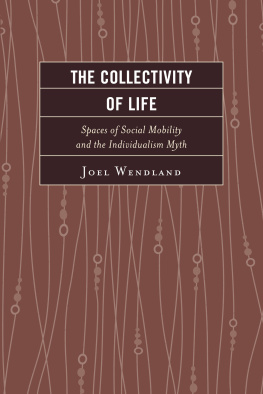

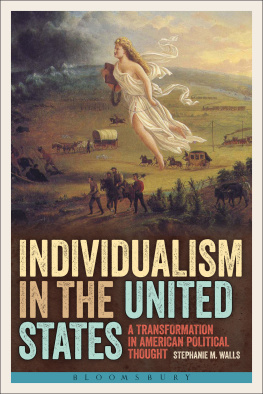
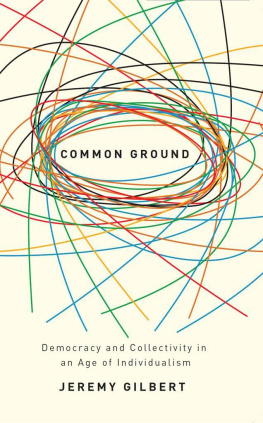
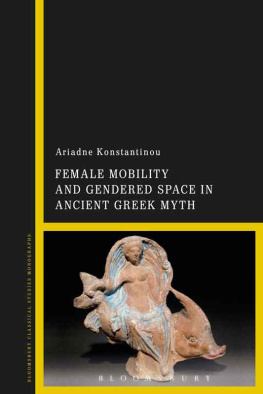

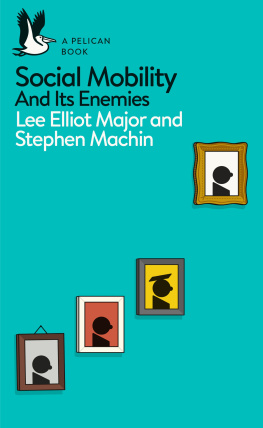
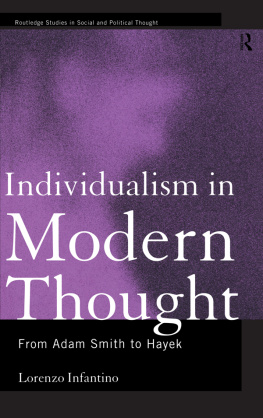
 TM The paper used in this publication meets the minimum requirements of American National Standard for Information Sciences Permanence of Paper for Printed Library Materials, ANSI/NISO Z39.48-1992.
TM The paper used in this publication meets the minimum requirements of American National Standard for Information Sciences Permanence of Paper for Printed Library Materials, ANSI/NISO Z39.48-1992.